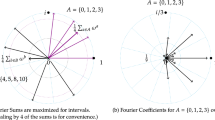Abstract
We consider both information-theoretic and cryptographic settings for Multi-Party Computation (MPC), based on the underlying linear secret sharing scheme. Our goal is to study the Monotone Span Program (MSP), that is the result of local multiplication of shares distributed by two given MSPs as well as the access structure that this resulting MSP computes. First, we expand the construction proposed by Cramer et al. for multiplying two different general access structures and we prove some properties of the resulting MSP.We prove that using two (different) MSPs to compute their resulting MSP is more efficient than building a multiplicative MSP.Next we define a (strongly) multiplicative resulting MSP and we prove that when one uses dual MSPs only all players together can compute the product. An analog of the algebraic simplification protocol of Gennaro et al. is presented. We show which conditions the resulting access structure should fulfill in order to achieve MPC secure against an adaptive, active adversary in the zero-error case in both the computational and the information-theoretic model.
Access this chapter
Tax calculation will be finalised at checkout
Purchases are for personal use only
Preview
Unable to display preview. Download preview PDF.
Similar content being viewed by others
References
Ben-Or, M., Goldwasser, S., Wigderson, A.: Completeness theorems for Non- Cryptographic Fault-Tolerant Distributed Computation. In: STOC 1988, pp. 1–10 (1988)
Chaum, D., Crepeau, C., Damgård, I.: Multi-Party Unconditionally Secure Protocols. In: STOC 1988, pp. 11–19 (1988)
Cramer, R., Damgård, I., Maurer, U.: General Secure Multi-Party Computation from any linear secret sharing scheme. In: Preneel, B. (ed.) EUROCRYPT 2000. LNCS, vol. 1807, pp. 316–334. Springer, Heidelberg (2000)
Cramer, R., Fehr, S., Ishai, Y., Kushilevitz, E.: Efficient Multi-Party Computation over Rings. In: Biham, E. (ed.) EUROCRYPT 2003. LNCS, vol. 2656, pp. 596–613. Springer, Heidelberg (2003)
Chor, B., Goldwasser, S., Micali, S., Awerbuch, B.: Verifiable secret sharing and achieving simultaneity in the presence of faults. In: FOCS 1985, pp. 383–395 (1985)
Fehr, S., Maurer, U.: Linear VSS and Distributed Commitments Based on Secret Sharing and Pairwise Checks. In: Yung, M. (ed.) CRYPTO 2002. LNCS, vol. 2442, pp. 565–580. Springer, Heidelberg (2002)
Gennaro, R., Rabin, M., Rabin, T.: Simplified VSS and Fast-Track Multi-party Computations with Applications to Threshold Cryptography. In: PODC 1998, pp. 101–111 (1998)
Goldreich, O., Micali, S., Wigderson, A.: How to Play Any Mental Game or a Completeness Theorem for Protocols with Honest Majority. In: STOC 1987, pp. 218–229 (1987)
Hirt, M., Maurer, U.: Complete characterization of Adversaries Tolerable in General Multiparty Computations. In: PODC 1997, pp. 25–34 (1997)
Karchmer, M., Wigderson, A.: On Span Programs. In: Proc. of 8th Annual Structure in Complexity Theory Conference, pp. 102–111 (1993)
Maurer, U.: Secure Multi-Party Computation Made Simple. In: Cimato, S., Galdi, C., Persiano, G. (eds.) SCN 2002. LNCS, vol. 2576, pp. 14–28. Springer, Heidelberg (2003)
Nikov, V., Nikova, S., Preneel, B., Vandewalle, J.: Applying General Access Structure to Proactive Secret Sharing Schemes. In: Proc. of the 23rd Symposium on Information Theory in the Benelux, Universite Catolique de Lovain (UCL), Lovain-la-Neuve, Belgium, May 29-31, pp. 197–206 (2002), Cryptology ePrint Archive: Report 2002/141
Nikov, V., Nikova, S., Preneel, B.: Multi-Party Computation from any Linear Secret Sharing Scheme Secure against Adaptive Adversary: The Zero-Error Case. Cryptology ePrint Archive: Report 2003/006
Shamir, A.: How to share a secret. Commun. ACM 22, 612–613 (1979)
Author information
Authors and Affiliations
Editor information
Editors and Affiliations
Rights and permissions
Copyright information
© 2003 Springer-Verlag Berlin Heidelberg
About this paper
Cite this paper
Nikov, V., Nikova, S., Preneel, B. (2003). On Multiplicative Linear Secret Sharing Schemes. In: Johansson, T., Maitra, S. (eds) Progress in Cryptology - INDOCRYPT 2003. INDOCRYPT 2003. Lecture Notes in Computer Science, vol 2904. Springer, Berlin, Heidelberg. https://doi.org/10.1007/978-3-540-24582-7_10
Download citation
DOI: https://doi.org/10.1007/978-3-540-24582-7_10
Publisher Name: Springer, Berlin, Heidelberg
Print ISBN: 978-3-540-20609-5
Online ISBN: 978-3-540-24582-7
eBook Packages: Springer Book Archive




